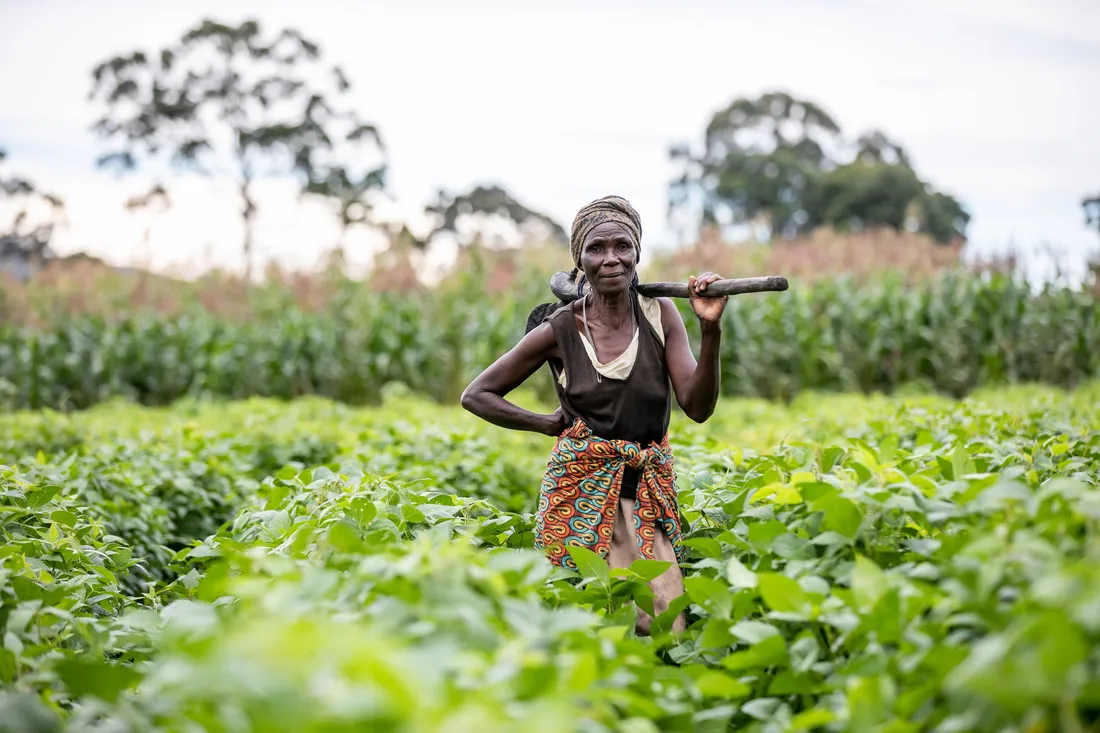
Following UNFSS 2021, the five action chairs: GAIN, CARE, EAT, ICCCAD, and WWF as well as the Club of Rome and C40 established the Transforming Urban-Rural Food Systems (TURFS) Consortium (formerly called the Food Forward Consortium – FFC). Their aim was to build an inclusive global coalition of dedicated non-state actors to tangibly catalyse food systems transformation, at scale, locally and globally.
TURFS harnesses each member’s expertise, influence, and credibility, to achieve inclusive, systemic impact at the intersection of climate, nutrition, livelihoods, biodiversity and other environmental aspects. This is further strengthened by their combined presence in more than 100 countries, and their diversity of key stakeholder relationships, spanning governments, businesses, civil society, multilateral organizations, and research centers. Alongside Lawrence Haddad (GAIN Executive Director), the Food Systems Governance and Environmental programs support GAIN’s engagement in TURFS.

TURFS have developed a bold proposal, which presents Cities as strategic entry points for food systems transformation.
TURFS will harness the power of cities in shaping urban-rural food systems. Emphasising health, resilience, sustainability and equity, TURFS aims to pioneer a global shift in our food systems.
Cities are uniquely positioned to facilitate and accelerate food systems transformation. Globally more people live in urban areas with the bulk of food produced being consumed and wasted by urban residents. Presently, more than half of the world lives in cities. This is projected to rise to 70% of the global population by 2050.
Leadership, stakeholder engagement within cities, across the rural – urban landscape and across multiple levels of government as well as evidence, best practices and governance tools can be leveraged by cities to drive sustainable food systems transformation that is systemic, inclusive and innovative. This offers resilience through win-win solutions that benefit communities’ quality of life, health of the planet and economic prosperity.
Funded by a Laudes Foundation grant, the TURFS Consortium developed a strategic plan to support cities in transforming urban-rural food systems. The Consortium presents a dynamic, multifaceted and scalable intervention model. This model is attentive to local context, agency and sustained effort. It is also designed to be amplified across cities through networks, sharing platforms and with support from national governments. Underpinning this model is a balance of expertise, evidence, relationships and city mandates with a people centric co-design “win-win” solution approach.
TURFS aims to support cities to:
TURFS Consortium co-led the special event entitled “Leveraging Urbanisation for Food Systems Transformation” event with FAO and the Sustainable Urban Food Systems Coalition during the UN Food Systems Summit Stocktaking moment. The event convened TURFS principal – Joao Campari (Global Leader of Food Practice, WWF), along with mayors, ministers, and academicians to heighten awareness, advocate and learn about cities and how working towards shared food systems goals with countries.
Learn moreShifting consumption and reducing food loss & waste (FLW) are critical action areas for both the climate and the goal of affordable, healthy, sustainable food for all. Together with the COP28 Presidency and High Level Climate Champions, TURFS Consortium will be organizing an event on Sustainable Consumption, Healthy Affordable Food for All and Reducing Food Loss and Waste on December 10.
Read moreThe TURFS consortium recognizes the leadership and administrative potential of cities as hubs for just, transformative food systems change. This strongly aligns with NSA’s call to action on food systems, as put forward by the high level climate champions. In particular, this call seamlessly aligns with TURFS primary goal of catalyzing global wave of change through local actions, aiming to achieve resilient, sustainable, and equitable urban-rural food systems by 2030.
Read moreFounded in 1945 through the creation of the CARE Package®, CARE is a leading humanitarian organization fighting global poverty. CARE places special focus on working alongside women and girls because, equipped with the proper resources, they have the power to lift whole families and entire communities out of poverty.
GAIN drives policy-supported initiatives in 11 countries to boost safe, nutritious food consumption, especially for the vulnerable, across diverse food systems.
EAT is a non-profit dedicated to transforming our global food system through sound science, impatient disruption and novel partnerships.
The International Centre for Climate Change and Development (ICCCAD) is one of the leading research and capacity building organizations working on climate change and development in Bangladesh. ICCCAD’s aim is to develop a world-class institution that is closely related to local experience, knowledge and research in one of the countries that is most affected by climate change.
WWF is one of the world’s leading conservation organizations, working for 60 years in nearly 100 countries to help people and nature thrive. With the support of more than 5 million supporters worldwide, WWF is dedicated to delivering science-based solutions to preserve the diversity and abundance of life on Earth, halt the degradation of the environment, and combat the climate crisis.
The Club of Rome identifies holistic and systemic solutions to complex global issues and promote policy initiatives and action to enable humanity to emerge from planetary emergencies including those linked to the food system.
C40 is a network of mayors of nearly 100 world-leading cities collaborating to deliver the urgent action needed right now to confront the climate crisis.